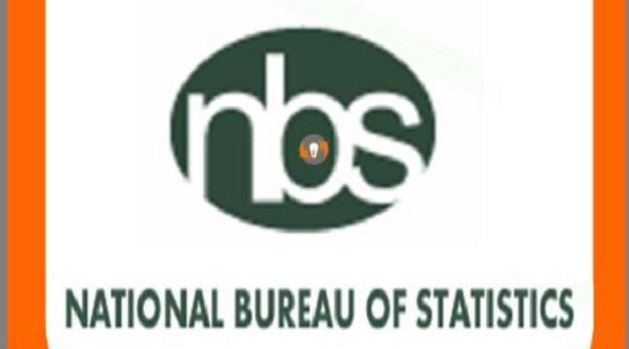E-Business
Rising above the Noise: Differentiating Your Brand for Success

By Reuben Kalu
In the fiercely competitive landscape of business, standing out from the crowd is not just an option; it’s a necessity.

Reuben Kalu
In a world where consumers are bombarded with choices, companies must find ways to differentiate themselves or risk being lost in the noise.
This principle is succinctly captured in the book “Killer Differentiators,” where the authors emphasize the importance of carving out a unique identity in order to thrive in the marketplace.
One of the central tenets of this philosophy is encapsulated in the phrase “Differentiate or Sell Cheap.” In this article, we delve into the significance of this principle and explore how businesses can leverage it to achieve sustainable growth.
At its core, “Differentiate or Sell Cheap” underscores the idea that businesses must either offer something truly distinct to justify premium pricing or compete on price alone. In today’s hypercompetitive environment, merely offering a product or service is no longer sufficient. Consumers are seeking experiences, value, and emotional connections with brands. Therefore, companies must find ways to differentiate themselves in the minds of their target audience.
But why is differentiation so crucial? In a crowded marketplace, consumers are faced with an abundance of choices. Without a compelling reason to choose one brand over another, they are likely to default to the cheapest option. This commoditization erodes profit margins and makes it difficult for companies to sustainably grow their businesses.
However, by differentiating themselves, companies can create a unique value proposition that resonates with consumers, thereby reducing the emphasis on price as the primary decision-making factor.
So, what does it mean to differentiate? Differentiation can take many forms, ranging from product features and quality to customer service, brand personality, and overall customer experience. Essentially, it involves finding a distinctive aspect of your business that sets you apart from competitors and resonates with your target audience.
This could be a proprietary technology as seen with Arravo, a commitment to sustainability, a focus on craftsmanship, or even a quirky brand personality.
Take, for example, the case of Apple. Despite being in a market saturated with tech giants, Apple has managed to carve out a unique identity based on its design aesthetics, user-friendly interface, and ecosystem of products and services.
By differentiating itself as a premium brand focused on innovation and user experience,
Apple is able to command higher prices for its products compared to its competitors.
Of course, differentiation alone is not enough. Companies must also deliver on the promises implicit in their differentiation strategy.
This requires a relentless focus on quality, consistency, and customer satisfaction.
After all, a differentiated brand that fails to meet customer expectations will quickly lose credibility and relevance in the marketplace.
But what about the alternative option: selling cheap? While competing on price alone may seem like a viable strategy to attract budget-conscious consumers, it often leads to a race to the bottom, where profit margins are razor-thin, and sustainability is compromised.
Price wars can be detrimental to both individual businesses and the industry as a whole, fostering a culture of discounting and devaluing products and services.
Moreover, competing on price alone is inherently limiting. It positions a company as a commodity provider, where the only differentiator is price, making it difficult to build brand loyalty or command premium pricing. In contrast, differentiation allows companies to create meaningful connections with consumers, fostering loyalty and advocacy that transcends price considerations.
That being said, there are instances where selling cheap may be a strategic decision, particularly in highly price-sensitive markets or when entering new markets where brand recognition is low. However, even in these cases, companies should strive to differentiate themselves in other ways, whether through superior customer service, unique packaging, or value-added services.
Ultimately, the principle of “Differentiate or Sell Cheap” is about making a deliberate choice about how to position your brand in the marketplace.
It’s about recognizing that in order to thrive in today’s competitive landscape, businesses must offer something of value that resonates with consumers.
Whether that value comes from a unique product feature, exceptional customer service, or a compelling brand story, the key is to stand out in a meaningful way.
In conclusion, the principle of “Differentiate or Sell Cheap” is a powerful reminder of the importance of differentiation in today’s business world.
By finding ways to set themselves apart from competitors, companies can create sustainable growth opportunities and build lasting relationships with their customers.
Whether through innovation, quality, or customer experience, differentiation is the key to success in a crowded marketplace.
So, the next time you’re faced with the choice between standing out or competing on price alone, remember: Differentiate or Sell Cheap.
E-Business
Senate Passes Bill to Re-enact NIMC Act

The Senate has passed a bill, seeking to repeal and re-enact the National Identity Management Commission (NIMC) Act.

This followed adoption of report of Committee on National Identity Card and Population at plenary on Wednesday.
The report was presented by Senator Victor Umeh (LP-Anambra), chairman of the committee.
Senator Umeh in his presentation said the bill sought to provide for the establishment of a national identity database and the National Identity Management Commission.
According to him,the agency will be charged with responsibilities for maintenance of national database, the registration of individuals and the issuance of identity credentials.
He said the bill would lead to the creation of national identity database to source business biometric and empower NIMC to issue regulations and guidelines for implementation of the act and other related matters.
He said the bill sought to strengthen the legal framework of national and digital identity, hereby creating an optimal foundational identification ecosystem that fosters inclusion, universal coverage, and accessibility.
Senator Umeh said the act would establish a harmonious foundational identity system that is governed by a less restrictive, less cumbersome, non-discriminatory, non-punitive data protection, cost-effective, and compliance with global borders.
Senator Umeh said the bill, when passed into law, would address the challenges and limitations of national Identity management commission Act 2007, repeal it, and then close the gap of incomplete and inaccurate national identity database, provide efficient governance and service delivery.
He said the bill received overwhelming support from stakeholders at the public hearing due to the need to implement the long-awaited database system.
E-Business
World Bank Expresses Concern over Nigeria’s Poor Data, Statistics Quality

The World Bank has expressed concern over Nigeria’s poor statistical performance, noting that the country lags behind its aspirational peers such as Mexico, Colombia, South Africa and Brazil.

Mrs. Julie Osagie-Jacobs, director, Information and Public Relations, Ministry of Budget and Economic Planning, stated this in a statement after a courtesy visit to Senator Abubakar Bagudu, minister of Budget and Economic Planning, by a delegation from the World Bank led by Ndiame Diop, country director; and Mr Johan Mistiaen, practice mfor West and Central Africa, on Wednesday.
In his presentation titled “Next Level Statistics to Support Nigeria’s Reform and Growth Agenda,” Mistiaen stated that Nigeria’s statistical system was not on par with those of its developmental counterparts.
He advised that an annual investment of between $10m and $15m in the country’s statistical infrastructure would significantly improve performance and align Nigeria with its peers.
The statement read in part, “Earlier, Mr. Johan Mistiaen in his presentation on the next level statistics to support Nigeria’s reform and growth agenda, observed that the country’s statistical performance was not at par with its aspirational peers as Mexico, Colombia, South Africa and Brazil.
“He suggested that investing about $10-15m annually into the country’s statistical system can raise performance to that of its aspirational peers.”
Responding, Bagudu assured that the Federal Government would continue to guarantee the independence of the National Bureau of Statistics.
He commended the Bureau for consistently releasing credible and methodical data that have been relied upon by reputable international organisations.
The minister stressed that there would be no government interference in the operations of the NBS.
E-Business
FG Plans to Link Social Register to NIN for Humanitarian Crisis

Federal government has disclosed that efforts are ongoing to link the National Social Register (NSR) to the National Identity Numbers (NIN).

Prof. Nentawe Yilwatda, minister of Humanitarian Affairs and Poverty Reduction, explained that the linked data would assist the country to anticipate crises, mobilize resources faster, and ensure aid reaches those who need it the most.
He said harnessing data would save the country and relevant stakeholders the stress and bottlenecks of outdated processes.
He also identified bureaucratic crisis as the biggest crisis in the humanitarian space which stalls responses to humanitarian issues.
Speaking in Abuja on Tuesday at the National Humanitarian Roundtable programme, the minister said: “People are traumatized by climate change, security threats and economic shock across the country and in the midst of these, we have limited funding.
“The biggest crisis we have is not just the people being killed, the crisis we have is a bureaucratic crisis that does not respond to a humanitarian crisis. Every delay in decision making, every inefficiency in coordination, every shortfall in funding, costs the life of people.
“They say knowledge is power, but knowledge can be destructive too. It can only be power if we use it effectively. By leveraging data and technology, we can anticipate crises; we can mobilize resources faster and ensure aid reaches those who are in need the most and without the bottleneck of outdated processes.
“We are linking the social register to national identity numbers and geotagging all homes of those who are vulnerable across the country so that if there’s any crisis, we don’t need to begin to walk around communities and taking names and asking the States Emergency Management Agency and the National Emergency Management Agency (NEMA) for data.

 News2 days ago
News2 days agoPolice Arrest 4 Bank Staff over Alleged ₦270m Fraud, Money Laundering

 E-Financial2 days ago
E-Financial2 days agoUBA Grows Profit to ₦804Bn, Declares N3 Kobo Final Dividend

 E-Business2 days ago
E-Business2 days agoNIMC to Prosecute Nigerians Printing ‘NIN Cards’, Says Only Slip is Legal

 Telecom2 days ago
Telecom2 days agoOpen Access Fabrics Set to Drive Connectivity to Achieve a Digital Economy

 E-Business2 days ago
E-Business2 days agoUnleashing Nigeria’s Business Potential: The Cloud as Catalyst for Growth

 E-Business1 day ago
E-Business1 day agoFG Plans to Link Social Register to NIN for Humanitarian Crisis

 Telecom2 days ago
Telecom2 days agoMTN Nigeria and Pan-Atlantic University Invite Media Practitioners for 4th Media Innovation Programme

 General News2 days ago
General News2 days agoFG, UK FCDO, and Ghana Partner to Launch Sankore























